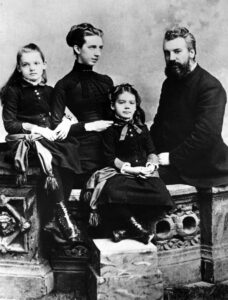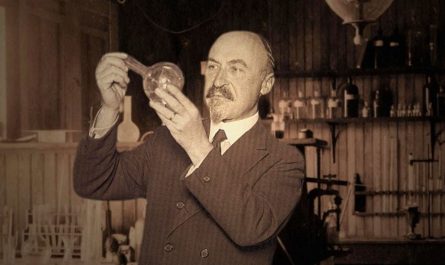Early Life and the Pursuit of Sound
Alexander Graham Bell was born on March 3, 1847, in Edinburgh, Scotland. From a young age, Bell was fascinated with the mechanics of sound, likely influenced by his father, Alexander Melville Bell, who was a leading expert in elocution and the teaching of speech to the deaf. As a result, Alexander became immersed in studies on speech, sound, and communication. This early exposure to sound mechanics eventually led him toward one of the greatest inventions of the 19th century: the telephone.
During his teenage years, Bell and his family moved to London, and later to Canada and the United States, seeking better opportunities. Bell’s family had a profound interest in helping people with hearing impairments, especially his mother, who was deaf. His compassion for the deaf and his desire to improve communication for everyone would become his life’s work. Bell studied how speech could be transmitted in new ways and developed a deep understanding of acoustic science. This knowledge formed the foundation of his later groundbreaking invention.
Path to the Invention: From Telegraphy to Telephony
By the mid-19th century, the telegraph was the primary means of long-distance communication. However, the telegraph could only send coded messages via Morse code, which was both slow and limited. Bell recognized the limitations of this technology and believed that a device capable of transmitting human voice over wires could change the world. Moreover, Bell’s understanding of how sound traveled through vibrations led him to believe that voice transmission, though challenging, was possible. His inventive mind was sparked by the idea of converting sound waves into electrical signals that could be sent over wires.
In 1871, Bell began experimenting with acoustic telegraphy, trying to send multiple messages over the same wire. It was during this work that the concept of voice transmission emerged. Bell envisioned a device that could electrically transmit sound by mimicking the human ear. In 1874, while working with his assistant, Thomas Watson, Bell had a breakthrough. He discovered that varying the intensity of electric currents could replicate the vibrations of sound waves, which could then be turned back into audible sound at the receiving end.
The Telephone: Birth of a Revolutionary Invention
On March 10, 1876, history was made. Bell, while in his laboratory with Watson, uttered the now-famous words, “Mr. Watson, come here, I want to see you.” These were the first words ever transmitted over a telephone line. Watson, in a separate room, clearly heard Bell’s voice through the receiver. The telephone had been born. This simple exchange marked the beginning of a new era in global communication. No longer would people be limited to written messages or code; human voices could now travel across great distances.
The invention of the telephone revolutionized communication on a global scale. For the first time, people could communicate instantly over long distances, bridging gaps that had once seemed impossible. Bell’s invention fundamentally changed how humans interacted, did business, and connected with each other. Over the years, the telephone would evolve into one of the most significant inventions of modern times. It laid the foundation for everything from radio to the internet and modern smartphones.
Legal Battles and Success
Despite its success, the telephone’s journey wasn’t without controversy. Shortly after filing the patent for the telephone on February 14, 1876, Bell faced numerous legal challenges. Other inventors, including Elisha Gray, claimed to have developed similar devices at the same time. However, Bell’s patent was awarded priority, and he successfully defended it in court. Over the years, Bell’s telephone company, which later became AT&T, grew into one of the largest and most influential telecommunications companies in the world.
Bell continued his scientific endeavors and remained deeply invested in his work with the deaf. He also explored other inventions, such as the photophone, which could transmit sound using light waves, and early developments in aviation and hydrofoils. However, it was his work on the telephone that secured his legacy as one of history’s most influential inventors. Bell’s telephone patent became one of the most valuable and lucrative patents ever filed, transforming him into a wealthy and prominent figure.
Later Years and Legacy
After the invention of the telephone, Bell spent the rest of his life experimenting with new ideas and inventions. He founded the Volta Laboratory, where he conducted groundbreaking work in sound recording and transmission. Bell’s contributions to science, communication, and education continued to grow until his death on August 2, 1922. At the time of his passing, telephones had already become widespread, and his invention had revolutionized global communication.
Today, Bell is remembered not only for his invention but also for his humanitarian work, particularly in supporting the education of the deaf. His legacy lives on in every phone call made, every text message sent, and every video call connected. Without Bell’s curiosity, innovation, and determination, the world would be a much more disconnected place.
Invention Story: The Complete Timeline
| Full Name | Alexander Graham Bell |
|---|---|
| Born | March 3, 1847, Edinburgh, Scotland |
| Died | August 2, 1922, Nova Scotia, Canada |
| Nationality | Scottish-American |
| Education |
|
| Occupation | Inventor, Scientist, Teacher of the Deaf |
| Known For | Inventing the Telephone |
| Key Contributions |
|
| Patent |
|
| Spouse | Mabel Gardiner Hubbard (m. 1877–1922) |
| Children |
|
| Legacy |
|





Thank you for your articles. They are very helpful to me. May I ask you a question?
May I request more information on the subject? http://www.hairstylesvip.com All of your articles are extremely useful to me. Thank you!
Thanks for your help and for writing this post. It’s been great. http://www.hairstylesvip.com